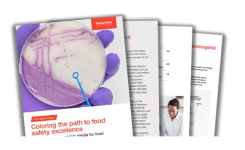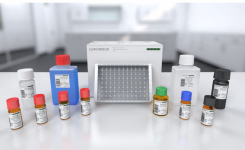Convenient and Reliable QC Organisms for the Pharmaceutical Industry
go back to news archives| | Microbiology specialist Thermo Scientific offers a comprehensive range of ready-to-use quality control micro-organisms. These are ideal for use in pharmaceutical applications, such as bacteriostasis and fungistasis testing, microbial limit testing, bioburden testing, growth promotion testing and method validation. Quanti-Cult® and Quanti-Cult Plus® are safe and convenient to use, delivering consistent counts of less than 100 colony-forming units (CFU).1 |
| Customers can be assured that Quanti-Cult and Quanti-Cult Plus organisms are all within 2 passages from the reference culture and each pack includes a lot specific Certificate of Quality and transfer labels to accommodate QC/QA requirements. |
Source : Thermo Scientific. View archived contact details
Posted on February 20, 2007
















